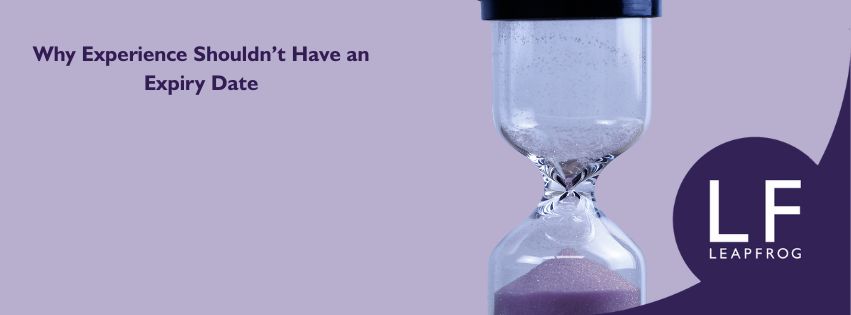Bridging the Gap: Why Every Generation Belongs in the Workplace

At a time when businesses are crying out for loyalty, experience and stability… why are so many talented, energetic people being overlooked?
Why Experience Shouldn’t Have an Expiry Date
I’ve spoken to several amazing professionals recently - smart, capable, and motivated. But they all have one thing in common: they’re around 60, and they can’t get interviews.
And honestly, it’s disheartening.
These are people who’ve led teams, delivered results, navigated economic shifts, and built skills that only time and perspective can bring. They’re still full of energy and ideas — but too often, they’re being overlooked.
The reasons vary. Some employers assume they’re “too senior.” Others quietly worry they won’t adapt as quickly, or that they’re close to retirement. Some candidates, aware of this bias, apply for less senior or part-time roles just to stay in the market. Yet even then, they’re passed over.
It’s a familiar story - and it’s time we rethink it.
What we’re missing
Right now, many businesses are crying out for stability, loyalty, and wisdom - the very things this generation has in abundance.
Experience brings calm under pressure. It brings perspective when problems arise, and it brings the ability to mentor and uplift younger colleagues. These aren’t abstract “nice-to-haves”; they’re qualities that make teams stronger, steadier, and more effective.
Hiring shouldn’t just be about filling a seat. It’s about building balance - mixing energy with experience, innovation with insight. The best-performing teams I’ve seen aren’t the youngest or the oldest. They’re the ones that blend different generations, backgrounds, and mindsets.
The changing meaning of “retirement”
Let’s also be honest - “retirement age” doesn’t mean what it used to.
Many professionals in their 60s don’t want to stop working. They want flexibility - perhaps fewer hours or shorter weeks - but they still want to contribute, learn, and feel part of something.
That’s where the conversation often gets more complex. I’ve seen some employers offer “rolling contracts” to those nearing retirement age - often well-intentioned, but it raises a question: is this really necessary?
If concerns exist around capability or health, these should already be managed through existing HR policies and good management practice - not through separate rules that quietly single people out by age.
A look beyond our borders
Other countries are already adapting.
In Japan, where the population is ageing rapidly, companies are actively seeking to retain and rehire older workers - not as a social initiative, but as a business necessity. According to the World Economic Forum (2024), the employment rate for individuals aged 65 and over reached 25.2% in 2022 - far higher than the United States (18.6%) or the United Kingdom (10.9%).
Surveys show that around 80% of Japanese workers want to continue working after retirement, and 70% prefer to stay with their previous employer. Their reasons vary - supplementing pensions, staying active, or simply maintaining a sense of purpose - but the result is clear: keeping experienced professionals in the workforce benefits everyone.
A different kind of diversity
We talk a lot about diversity in hiring - but age diversity often slips through the cracks.
And yet, it’s one of the most powerful forms of inclusion there is. A team that spans generations is a team that sees problems from more angles. It’s a team that learns faster, supports one another better, and grows stronger over time.
It’s not about charity or compromise. It’s about competitive advantage.
Time for a mindset shift
If you’re an employer, ask yourself: What are we really afraid of?
Because the truth is, the future of work isn’t just about technology or youth - it’s about perspective, adaptability, and human connection. Experience brings all of that in abundance.
So next time we're reviewing CVs, lets look beyond the birth date. Look at the story, the lessons, the resilience that only experience can bring.
Because experience doesn’t have an expiry date - and neither does potential.
